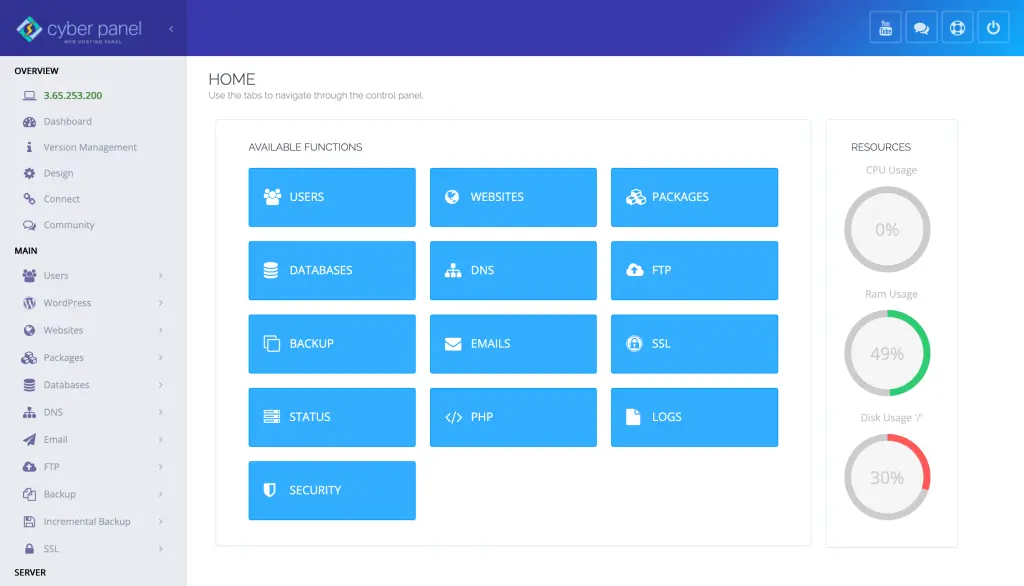Golang (Go) is an excellent option for developers are looking for a modern, efficient, and reliable programming language to work on. So, we are going to learn how to install Go on Ubuntu. Go was created by Google and is known for its simplicity, high performance, and concurrency support. Go provides a strong foundation whether you’re building web, cloud, or microservices. However, before starting the development, you have to install Go Ubuntu system.
We shall discuss Ubuntu, one of the most developer-friendly operating systems, here. The proper installation means that you will also be able to take full advantage of Go, such as its built-in garbage collection, powerful standard libraries, and cross-platform support.
Let’s get started!
Understanding Go
Go (or Golang) is an open-source programming language created at Google in 2007 and launched in 2009. Rust was pioneered to help with software development challenges in the modern world, including efficiency, scalability, and ease. Go is best celebrated for its simplicity, speed, and native support for concurrency.
Key Features of Go
We have to learn how to install Go on Ubuntu for these features:
Simple & Clearly – The syntax of pass is clean and easily understood, which makes it best for Beginners and Experts as well.
Get exclusive access to all things tech-savvy, and be the first to receive
the latest updates directly in your inbox.
High Performance – Go compiles into machine code, so it runs at a speed similar to C and C++, enabling high performance.
Concurrency Support – Go has goroutines that provide for efficient concurrency, which benefits high-performance applications.
Garbage Collection – The in-built garbage collector aids in efficient memory management without human intervention.
Cross-platform Development — Go apps can be compiled for various OSs, from Linux to Windows and macOS.
Robust Standard Library – Go has a rich set of built-in libraries, covering networking, file handling, cryptography, etc.
Where is Go Used?
Before knowing how to install Go on Ubuntu, it’s essential to learn its usage:
Web Development – Frameworks such as Gin and Fiber make it easier to develop high-performance web applications.
As a Language-Go is the most widely used language for building cloud infrastructure; some examples include Kubernetes, Docker, and Terraform!
Microservices – Go has an inherent advantage when it comes to microservices architecture.
Networking & APIs – Go is used frequently for the development of RESTful APIs and network applications.

Data Science & AI – While used less frequently than other languages, Go is becoming more popular for AI/ML applications, thanks to packages like Gonum.
Go is one of the fastest growing languages today due to its efficiency, simplicity, and powerful features. Go is a great fit, though, whether you’re building cloud applications, APIs, or system tools — which offer the perfect balance between performance and usability. Now, let’s learn how to install Go on Ubuntu.
Step 1: Updating System Packages
Before installing Go on Ubuntu, update your system packages before installing Go:
sudo apt update && sudo apt upgrade -yIt ensures you always have the latest package versions, avoiding unforeseen incompatibilities.
Step 2: Install Go on Ubuntu 22.04
Download Go Binary
Go to the official Go downloads page and download the latest stable version. Use wget to download it:
wget https://go.dev/dl/go1.22.0.linux-amd64.tar.gzExtract and Install Go
sudo rm -rf /usr/local/go
sudo tar -xf go1. 22. 0. linux-amd64. tar. gzThis extracts Go to /usr/local/go, the default installation directory.
Configure Organic Variables for Go
You have to set up the environment variables for Go. Add the following lines to your ~/.profile or ~/.bashrc file:
export PATH=$PATH:/usr/local/go/bin
export GOPATH=$HOME/go
export PATH=$GOPATH/bin:$PATH
Apply changes with:
source ~/.profileStep 3: Verify Installation
Verify whether Go was installed properly:
go versionOutput:
go version go1. 22. 0 linux/amd64Congratulations! Go is installed on Ubuntu successfully.
Step 4: Test Go Installation
Make a simple Go program to confirm everything is working:
mkdir -p $GOPATH/src/hello-go
cd $GOPATH/src/hello-go
nano main.go
Add the following code:
package main
import "fmt"
func main() {
fmt.Println("Hello, Go!")
}
Exit and save and run the program:
go run main.goOutput:
Hello, Go!This means that Go is working properly!
Extra Setup: Configuring Go Workspace
To develop efficiently, create a Go workspace structure:
mkdir -p $GOPATH/src/github.com/your-username/project-name
cd $GOPATH/src/github.com/your-username/project-name
Initialize a Go module:
go mod init github.com/your-username/project-nameThis is useful for dependency management, structuring the project.
Importance of CyberPanel in Go Development

CyberPanel is a powerful web hosting control panel that can enhance your Go development in several ways:
- Support for NGINX & OpenLiteSpeed: Provides tailored environments for deploying Go applications.
- Integrated Security: Ensures secure deployment with SSL and management of firewalls.
- Automatic Backups: Queues up your Go projects against loss of data.
- Database Management: Manage MySQL databases that your Go apps may depend upon seamlessly.
- One-Click SSL: Automatically integrates the SSL for your Go applications.
FAQs to Install Go on Ubuntu
Is it possible to install Go with apt rather than downloading it manually?
Yes, but not the latest version. To install an older Go version:
sudo apt install golang
How do I uninstall Go?
You can delete it with sudo rm -rf /usr/local/go and clean Go environment variables out of your profile.
How do I find the location where Go is installed on Ubuntu?
The default location for Go that gets installed is /usr/local/go.
Final Note!
Finally, we learned how to install Go on Ubuntu and get started with efficient software development. So whether you are building microservices, web applications, or cloud-native applications, Go is a terrific choice. Our guide will help you get your development environment set up in no time so you can get to coding!
Looking for a hosting solution for Go projects? CyberPanel provides powerful hosting, security, and developer-friendly environments.
So what are you waiting for? Get CyberPanel Today!



